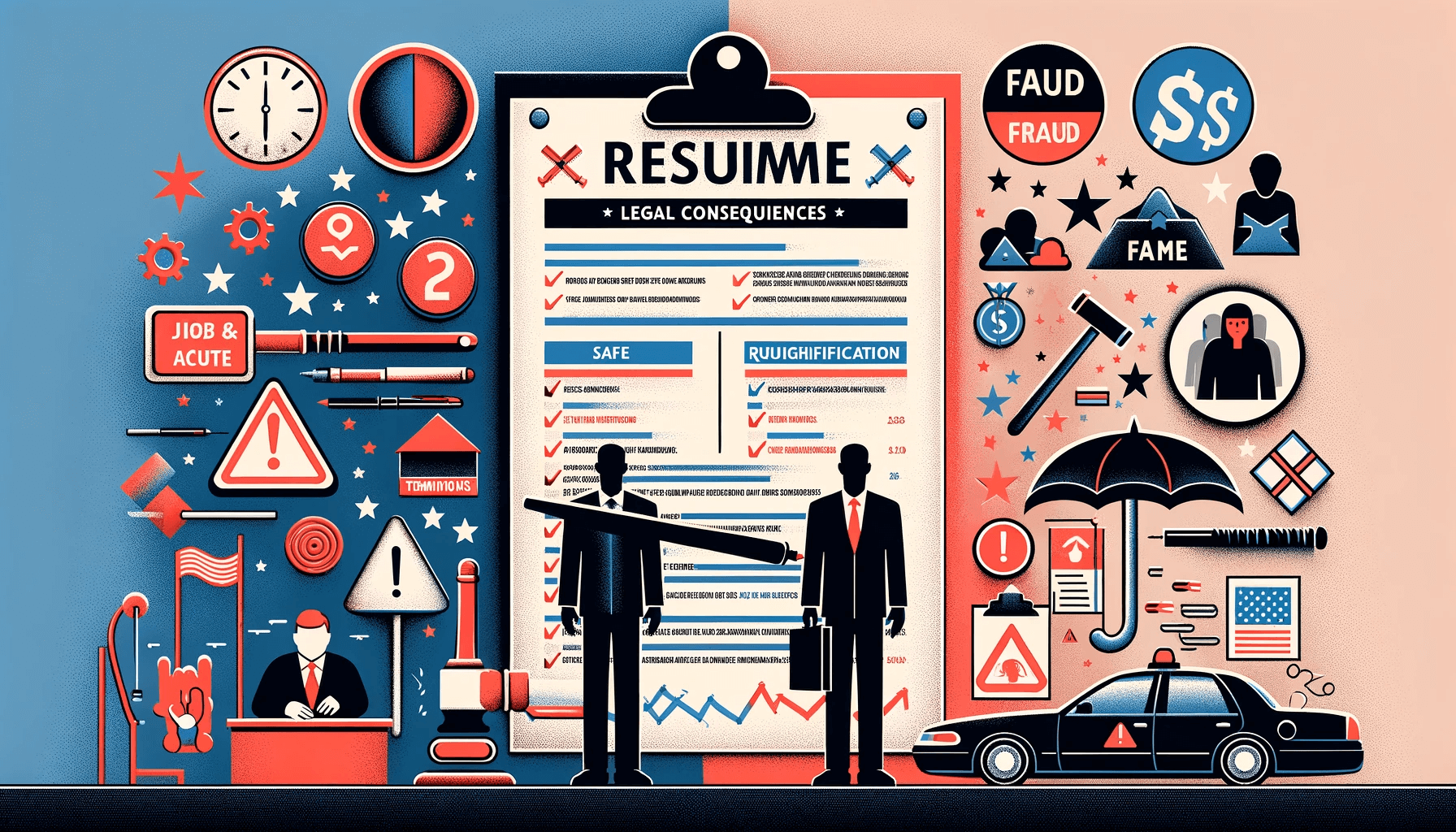In the competitive job market, the temptation to embellish or outright lie on a resume can be compelling. However, as a legal professional specializing in employment law, I’m here to explore a critical question many job seekers ponder: Is it illegal to lie on a resume in the U.S.? This article will navigate the murky waters of legal consequences tied to resume inaccuracies, highlighting the importance of honesty and transparency in your job application process.
Understanding the Legal Landscape
At the outset, it’s crucial to understand that the act of lying on a resume, in itself, is not categorized as a criminal offense under U.S. federal law. However, this doesn’t mean it’s a free-for-all. The repercussions of falsifying your resume can be severe, ranging from employment termination to civil lawsuits and, in specific contexts, criminal charges. Let’s delve deeper into scenarios where crossing the line can lead to legal trouble.
Employment Termination
The most immediate consequence of being caught lying on a resume is job termination. Employers have the right to terminate your employment if they discover inaccuracies in the information you provided during the hiring process. This is because most employment in the U.S. is at-will, meaning an employer can fire an employee at any time for any reason, barring illegal discrimination or violation of a contract.
Civil Lawsuits for Fraud
In more extreme cases, an employer might pursue a civil lawsuit for fraud if the resume lies result in significant damages to the company. For example, if an employee secures a position based on false credentials and their incompetence causes financial loss, legal action could be taken against them. Proving fraud in court requires showing that the employee intentionally lied, the employer relied on these lies, and the lies caused harm or damage.
Criminal Charges in Specific Circumstances
While rare, there are circumstances under which lying on a resume could lead to criminal charges. This is particularly true in industries that are highly regulated or positions that require security clearance. For instance:
- Falsifying Educational Credentials: Claiming to have degrees or certifications from accredited institutions without having earned them can be considered fraud, especially if the position requires specific qualifications for legal or regulatory compliance.
- Impersonation or Identity Theft: Using someone else’s identity or credentials to apply for a job can lead to criminal identity theft charges.
- Government Positions and Contracts: Lying to obtain a government job or contract can result in charges of perjury or making false statements, both of which carry serious penalties.
The Importance of Background Checks
In today’s digital age, employers have more resources at their disposal to conduct thorough background checks. These checks can verify educational backgrounds, employment history, certifications, and even criminal records. The ease with which employers can verify resume information makes honesty the best policy.
Legal Protections for Employers
It’s worth noting that employers are legally protected when conducting background checks, provided they comply with the Fair Credit Reporting Act (FCRA) and obtain the candidate’s consent. These protections enable employers to make informed hiring decisions and maintain workplace integrity.
Best Practices for Job Seekers
Given the potential legal and professional consequences of lying on a resume, here are some best practices for job seekers:
- Be Honest: Clearly, honesty is not just a moral choice but a practical one. Ensure that all information on your resume is accurate and verifiable.
- Highlight Your Strengths: Instead of fabricating experiences or qualifications, focus on presenting your actual skills and experiences in the best light.
- Seek Legitimate Qualifications: If you’re lacking in a particular area, consider pursuing legitimate qualifications or certifications rather than resorting to falsehoods.
Conclusion
To sum up, while lying on a resume might not always lead to handcuffs and courtrooms, the legal and professional risks involved are far from negligible. The implications of such actions can range from losing your job to facing civil or even criminal charges, depending on the nature and consequences of the falsehoods. As the job market continues to evolve, integrity remains a cornerstone of professional success. Employers value transparency and honesty, qualities that can significantly influence your career trajectory in the long run.
For individuals navigating the job application process, it’s crucial to understand that the short-term gains of embellishing a resume pale in comparison to the potential long-term legal and professional consequences. As legal professionals, we advise job seekers to approach their career aspirations with honesty, ensuring that their qualifications and experiences stand on solid ground. In doing so, you not only safeguard your professional reputation but also contribute to a more trustworthy and efficient job market.









Leave a Reply